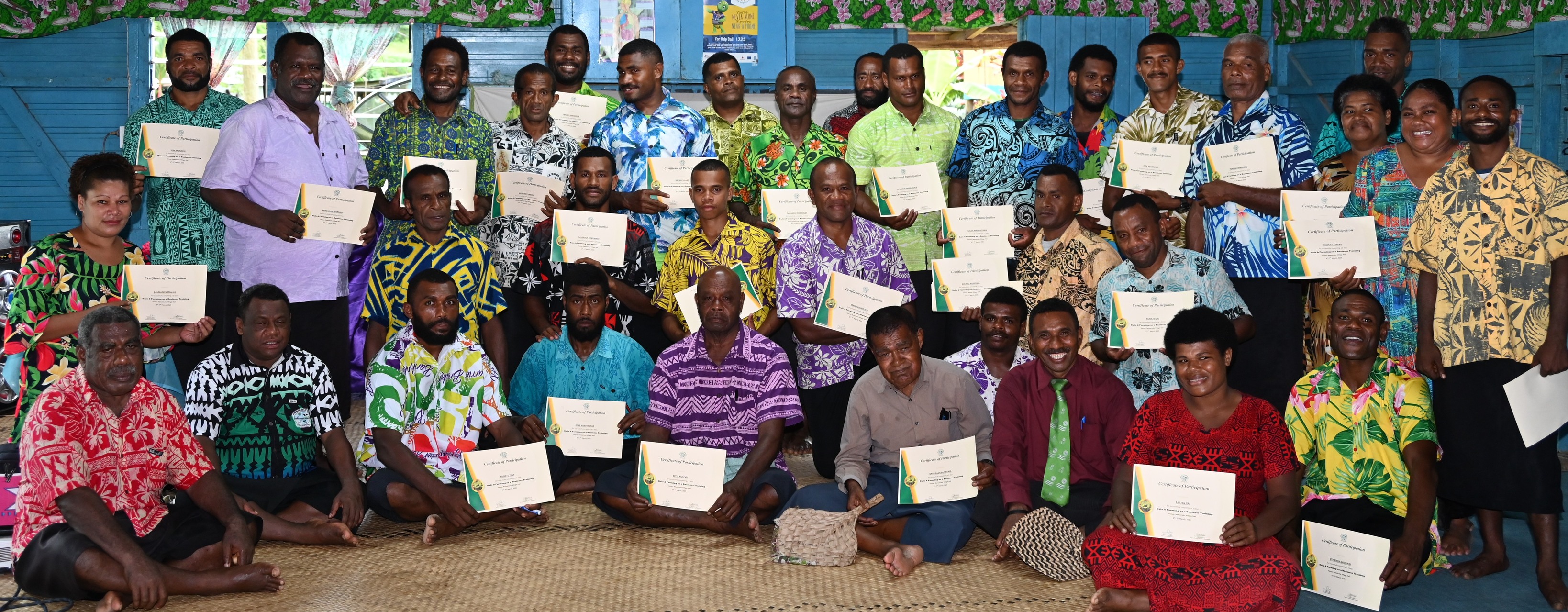DALO FARMERS AND YOUTHS GATHER IN NAWAIRUKU FOR COMPREHENSIVE TRAINING IN SUSTAINABLE AGRICULTURE AND LONG-TERM PLANNING
March 8, 2025

A transformative two-day training program was recently conducted in Nawairuku village, Tikina Lawaki, Ra, in a proactive effort to advance sustainable farming practices and foster future leaders in agriculture.
Bringing together dalo farmers and youth from across the community, the initiative focused on building essential farm management skills, developing innovative techniques for crop sustainability, and developing five-year plans to ensure long-term productivity and prosperity.
This training, led by the Ministry of Agriculture and Waterways, highlighted the importance of empowering local farmers and young people to address the challenges of modern agriculture while preserving traditional practices.
Participants engaged in hands-on workshops, interactive discussions, and collaborative activities, covering crucial topics such as soil health management, efficient resource utilization, and strategic planning designed to the unique needs of dalo farming in the region.
“This program is exactly what we needed,” shared Jope Nayarowale, a dalo farmer from Nakorovou village.
“The sessions on five-year planning and farm management have given me a new perspective on how to improve my operations and prepare for the future.”
Participants gained insights into proper dalo management practices, learnt about improved and primitive dalo varieties, explored strategies to address common pests and diseases with effective control measures.
Other key areas of focus include post-harvest handling techniques, sustainable land management adapted to different land classifications and limitations, as well as the integration of farming as a business.
Participants were also being guided in crafting better farm plans and enhancing their financial literacy to ensure long-term success.
The program serves as a platform for both farmers and youth to exchange ideas, share experiences, and explore solutions to the challenges faced by the agricultural sector.
By incorporating innovative techniques and sustainable practices, the training aims to enhance productivity while safeguarding the environment for future generations.
“This program is more than just a learning opportunity; it is a step toward a sustainable and resilient future for our farmers,” said the Senior Agriculture Officer (Ra), Isei Namacamaca.
“Through this training, we are equipping our dalo farmers and youth with the tools and knowledge they need to thrive, not just for today but for many years to come. It’s about building a community that is self-reliant and united in its vision for growth and sustainability.”
The emphasis on five-year planning is a standout feature of the training, encouraging participants to look beyond immediate gains and focus on strategic long-term objectives.
“By mapping out clear goals and actionable steps, dalo farmers can better navigate the complexities of the agricultural landscape and adapt to changing conditions. The inclusion of youth in the program is equally significant, as it seeks to inspire and empower the next generation of farmers and community leaders,” said Mr. Namacamaca.
The Nawairuku training program reflects a broader commitment to fostering resilience and self-sufficiency among rural communities.
With dalo farming serving as a cornerstone of livelihoods in the Tikina Lawaki, initiatives like this play a pivotal role in strengthening both the agricultural sector and the social fabric of the community creating a sustainable path forward.
ENDS
